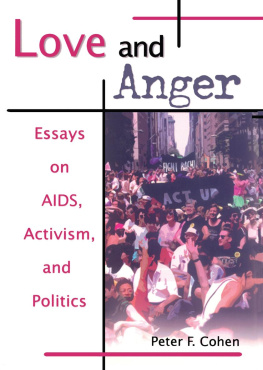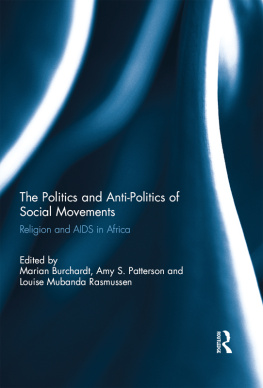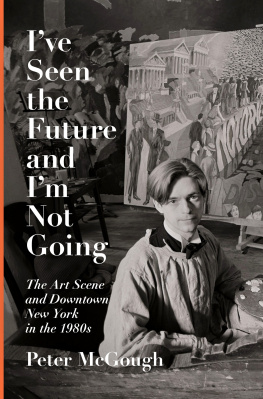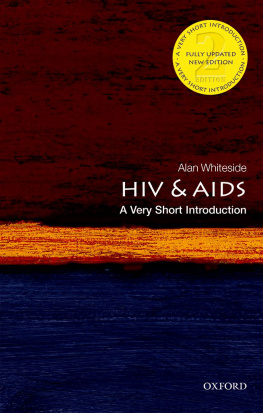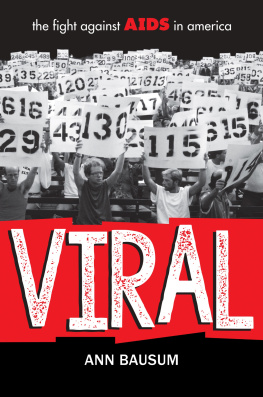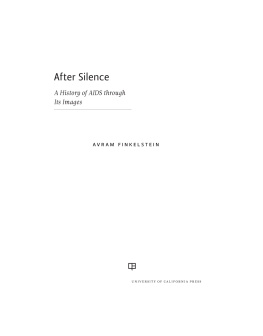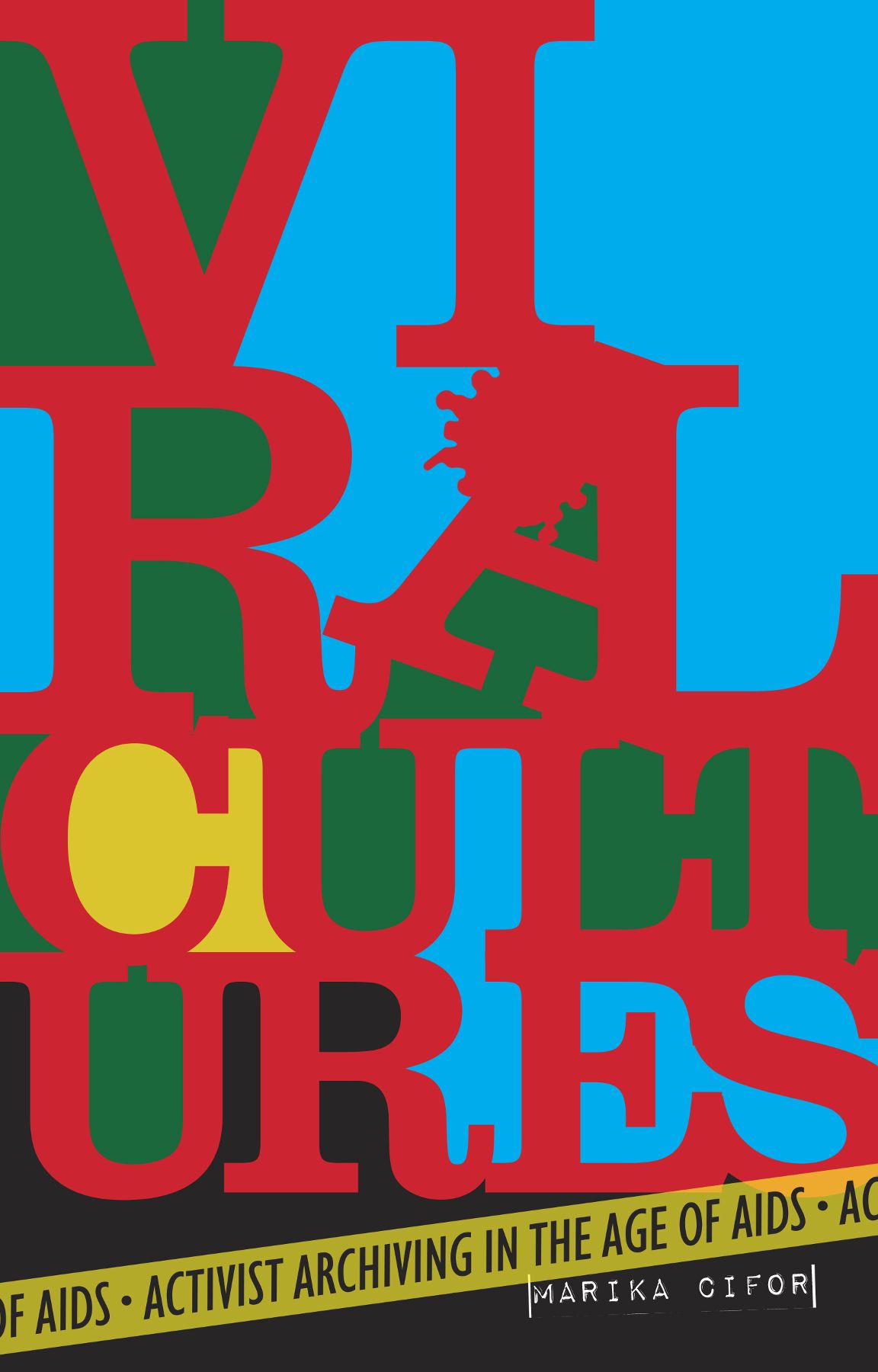
Viral Cultures
Viral Cultures
Activist Archiving in the Age of AIDS
Marika Cifor

University of Minnesota Press
Minneapolis
London
Cover design by Jeenee Lee Design
Copyright 2022 by the Regents of the University of Minnesota
All rights reserved. No part of this publication may be reproduced, stored in a retrieval system, or transmitted, in any form or by any means, electronic, mechanical, photocopying, recording, or otherwise, without the prior written permission of the publisher.
Published by the University of Minnesota Press
111 Third Avenue South, Suite 290
Minneapolis, MN 55401-2520
http://www.upress.umn.edu
ISBN 978-1-4529-6355-6 (ebook)
Library of Congress ebook record available at https://lccn.loc.gov/2021061580
The University of Minnesota is an equal-opportunity educator and employer.
To all the activist-archivists of HIV/AIDSpast, present, and future
Contents
For the Record: AIDS, Archives, and Vital Nostalgia
- if he were alive today he would be at this opening
- if she were alive today youd be texting her right now
- if he were alive today he would be going gray
- if they were alive today they could tell you about getting arrested at City Hall
- if she were alive today youd be so her type
- if he were alive today you would have met him by now
- if she were alive today she would have finished writing that book
- if he were alive today he would have you on your knees
- if he were alive today youd still be arguing about that
- if he were alive today hed still be living with AIDS
AIDS STANDS APART in fierce pussys For the Record. Printed in the retroviruss signature bloodred hue, it is printed on cheap newsprint. With an intimate catechism of ifs repeating across the windows of New York City bookstore and gallery Printed Matter, fierce pussy transformed the site into a newsstand, taking their installation about the nature and meanings of the AIDS record to Chelseas bustling sidewalks. For the Record also moved in posters distributed at museums, galleries, and nonprofits, on stickers and postcards, and in downloadable digital editions. Fierce pussy knew that passersby would only briefiy scan the text, so they emphasized AIDS intentionally. HIV/AIDS, this project asserted, is still breaking news.
Fierce pussy is Nancy Brooks Brody, Joy Episalla, Zoe Leonard, and Carrie Yamaoka. They met doing AIDS activism in 1991 and have collaborated on arts-based action ever since. These artists were acutely aware that in the twenty-first-century American popular imaginary, AIDS is static. The HIV/AIDS crisis in the United States is demarcated, when it surfaces at all in popular culture, as a past tragedy, a catalog of long-lost lives and decimated generations. AIDS is routinely marked as irrelevant to the unfolding crises and structural violences of our present. With each recurrent, yet distinct, utterance of If he/she/they were alive today, fierce pussy speculated in conditional language about what might have happened differently in the epidemics past, what could happen differently in its persistent present, and what could be different about HIV/AIDSs future.
For the Record in part is the expected AIDS record, an elegy for dead friends, comrades and lovers. In For the Record, too, there are traces of such conventional nostalgia, a potent longing for an earlier time shared with beloveds in the flesh. But significantly, fierce pussy refuses to us let stay comfortably in that space of uncritical, restorative yearning.
Conversely, fierce pussy conjures the dead not as martyrs but instead as wonderfully ordinary. The artists grant loved ones a mundane present in which they continue the everyday acts that constitute a life: texting, flirting, protesting, museum-going, fucking, talking, working. By making the present the focal point, fierce pussy pushes viewers to imagine and enact a different, more livable AIDS timein which the past continues into the present in ongoing trivial tiffs, celebratory openings, and new relationships. Fierce pussy moreover asserts that mourning and loss are ongoing experiences that do not reside solely in the past. The artists deny cultural pressure to move on, to move past, to let go, to get over it in favor of embracing the future. The AIDS time rendered is neither linear nor progressive; rather, it is part of a vital nostalgia practice, an activist longing for a past time that interrogates, addresses, and repairs structural power inequities.
Through its unpunctuated litany, For the Record invokes a renewed urgency to curating and archiving as the care work needed to generate the AIDS record and to renew our commitment to HIV/AIDS awareness and action that can engender holistic cure. Fierce pussy created an AIDS record that requires viewers to reconsider our personal, social, political, and biomedical relationship to AIDS in the twenty-first century. Highlighting makes the final phrase pivotal: If he were alive today, hed still be living with AIDS. It repeats with only pronoun variations on the foldouts. Fierce pussy reminds us that even if the dead were animate, their histories and bodies would still be charged with HIV. Between an earlier epidemic era and our own AIDS time, so much, and yet so little, has changed. There are important advances in HIV treatment that prolong lives and improve their quality. However, even as biotechnology renders HIV a manageable chronic illness for some, it still requires arduous efforts to attain and sustain healthfulness. The virus still persists in infected bodies, living indefinitely in memory T cells containing integrated, transcriptionally silent HIV DNA. For the Record aims to ensure the everyday realities of AIDS time are documented, preserved, and accessible now and for posterity. In their creation and curatorial mobilization of the record through vital nostalgia, fierce pussy demonstrates the high stakes of documenting AIDS in Americathen, now, becoming.
Viral Cultures: Activist Archiving in the Age of AIDS is about how we reckon with the AIDS past in this pandemic present. Archives are becoming as important to understanding AIDS as the biomedical event of HIV/AIDS itself. AIDS archives matter at this conjuncture for three primary reasons. First, archiving, the practices and acts of creating, collecting, preserving, and making accessible political, cultural, and medical knowledge, is a vital component of what Douglas Crimp terms AIDS cultural activism. Curatorial care work, the selection, organization, and maintenance of archives and records, enables them to be activated through creative works and events. Archiving and curation make possible the challenge and transformation of contemporary neglectful public understandings of the epidemics persistence and lived experiences of HIV/AIDS. This book is an account of the peopleactivists, artists, curators, and archivistsand ideologiestemporal, political, technological, cultural, and biomedicalthat shape AIDS archives and the cultural productions that animate these records.
Second, AIDS archives are produced by and reproduce the conditions of AIDS time. There is a continued urgency to AIDS cultural activism, and AIDS archives have a timely, evolving role to play in meeting and addressing it. In the accelerated registers of epidemic time Curation and archiving are practices of care enacted in activist archiving and archiving activism.
Next page

